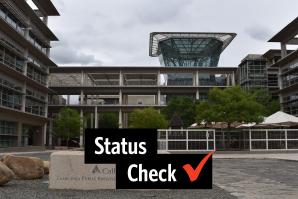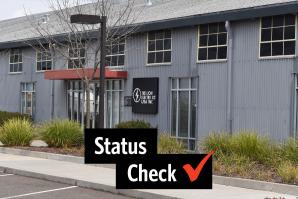David Lubarsky has faced challenging times in recent months, just like every other health care leader in the region.
Lubarsky, CEO of UC Davis Health, tells Comstock’s that his parent organization, the University of California, had not received roughly $1.2 billion, due to a variety of factors stemming from the coronavirus pandemic.
That’s on par with billion-dollar losses for the first quarter of 2020 posted by two of the other major health care providers in the region, Kaiser Permanente and Sutter Health, as well as CommonSpirit Health, which is the parent company of Dignity Health, another major local provider. But things could be worse.
“I will say this, that UC Davis Health has come through this remarkably strong,” Lubarsky says. “I think that’s based on the fact that, first and foremost, there wasn’t a large epidemic here. Secondly, while we’ve reduced services tremendously … we were able to come back online as quickly as any (academic) medical center in the United States.”
Health care is generally one of the strongest parts of the Capital Region’s economy, providing approximately 150,000 jobs in recent years, which makes it the top non-government employer locally, as Comstock’s previously reported (“The Might of Medicine,” April 2020).
COVID-19 — by no means a thing of the past, with the United States now reporting more than 2 million known cases and California approaching 150,000 — has presented significant challenges for health care. At least for the moment, though, local providers have been hanging tough and looking toward economic recovery.
Barry Broome, president and CEO of the Greater Sacramento Economic Council, saw how hard health care got hit by the pandemic. “I think it was very expensive to clear the hospitals out,” Broome says. “Most of the income comes from elective surgery, (and) they eliminated all their elective surgery. They had about 80 percent of their capacity removed for the entire period trying to prepare for COVID.”
Broome adds, “It’s unusual to see the health care industry hit like that. They’ll be more resilient than most industries, but it was pretty tough.”
Lubarsky says March, when the state and local governments issued stay-at-home orders prompting cancellation of elective surgeries, was a challenging month. Later that month, though, Congress passed the Coronavirus Aid, Relief, and Economic Security Act, which has provided $45 million to UC Davis Health, Lubarsky says.
“The second quarter, without the support of the CARES Act, we would probably not be in the black,” Lubarsky says. “But when you take into account the expected reimbursements or those that have already been received from the CARES Act, that helps fill a very big hole in the budget.”
Additionally, while job losses and layoffs have affected millions of Americans since the pandemic began, this aspect of the economic fallout has barely touched local health care, according to state filings. Records available on the California Employment Development Division website, via the Worker Adjustment and Retraining Notification Act, show that as of publication time, none of the major providers have had to lay employees off since March (though a smaller provider, Adventist Health, laid 108 employees in Lincoln, Yuba City and Lodi in this timeframe).
Most major local providers have reported losses despite receiving funding. Sutter Health issued a notice, linked to by Becker’s Hospital CFO Report, to shareholders on May 14 acknowledging that it had received “over $200 million in COVID-19 Relief Funds” but also incurred losses of $1.07 billion for its quarter that also ended in March. In a statement to Comstock’s, Sutter Health noted that it moved quickly after the first coronavirus cases began to be reported in January 2020, but that, “Given the precautions and efforts required to effectively respond to COVID-19, we now have a negative operating margin.”
MedCityNews reported in early May that Dignity Health received $180.2 million in CARES Act funding, more than any other health system at the time, but its parent company posted a $1.4 billion loss for its third quarter ending March 31, as HealthcareDive reported May 18. A spokesperson for Dignity Health told Comstock’s that it is “a large provider for Medicaid patients and already operate(s) on a slim margin. As a nonprofit organization, CARES Act funds are essential to our hospitals to help stabilize our finances. Without federal aid, our ability to sustain care for those most in need would be at risk.”
A statement from Kaiser Permanente to Comstock’s acknowledged that the company had a net loss of $1.1 billion in its first quarter of 2020 ending March 31. The statement said the loss was primarily driven “by instability in the capital markets caused by the pandemic, (though) it also reflected lost revenue and increased costs brought on this crisis” and that the full impact of COVID-19 was not yet known but must be monitored.
In another statement, Kaiser Permanente said it “received and is eligible to retain distribution of CARES Act relief funds totaling more than $500 million, and we have declined all of it with the exception of $11.8 million for Maui Health System, a nonprofit subsidiary” in Hawaii.
The four major providers are developing a public awareness campaign at sachospitals.com to emphasize that they work together to put patients first. Health leaders, including those at Sacramento County Public Health, are also monitoring rising numbers of COVID-19 patients.
As for UC Davis Health, Lubarsky says his organization is already working on contingency planning for a second wave of cases, including aggressively promoting a flu vaccine to save hospital space in the fall and winter. “We do believe it’s coming back in the fall,” Lubarsky says of COVID-19. “We’re not counting on a vaccine in any way, shape or form prior to 2021.”
–
Stay up to date on the effects of the coronavirus on people and business in the Capital Region: Subscribe to the Comstock’s newsletter today.
Recommended For You

The Might of Medicine
With around 150,000 jobs, a robust provider marketplace and a slew of projects underway, health care helps define the greater Sacramento region
Though service gaps and challenges remain, health care could eventually become the Sacramento region’s calling card.

Health Care Jobs Spur Economic Optimism
Local economist says Capital Region’s strengths in health care sector help insulate it from effects of COVID-19
Health care and life sciences account for around 150,000 jobs in the Sacramento region, making the sector the largest private employer. Experts suggest that the public sector and health care may expand locally, even as the coronavirus pandemic contracts the global economy.

Status Check: Cloudy Days for Pensions?
COVID-19 might lead to even fewer defined-benefit pensions in the private sector
It’s still early to fully gauge what effects the coronavirus economic shutdown will have on the pension landscape, but the preliminary outlook for certain parts of the industry, particularly with defined-benefit plans, isn’t encouraging.

Status Check: McClellan Park
Electric school bus company that moved to the development in December may temporarily close due to coronavirus
The coronavirus has upended operations for businesses around the Sacramento region, including Lion, which was founded in 2008 and operates and repairs all-electric school buses.



